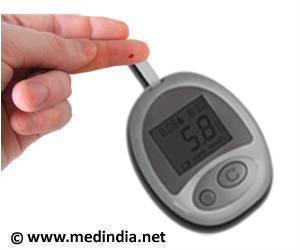A new research has discovered that the deficiency of thiamine, Vitamin B1, may be key to a range of vascular problems for diabetic patients.
A new research has discovered that the deficiency of thiamine, Vitamin B1, may be key to a range of vascular problems for diabetic patients.
Researchers at Warwick Medical School, University of Warwick, have also found the answer to why thiamine deficiency in diabetes had remained unknown so far.One of the most significant health problems that accompany diabetes are vascular complications: microvascular complications, such as damage to the kidney, retina and nerves in arms and legs; and macrovascular complications, such as heart disease and stroke.
The University of Warwick researchers, led by Professor Paul Thornalley, have shown convincingly that diabetic patients are thiamine deficient in blood plasma. They were also able to solve the mystery of what was happening to thiamine in diabetic patients and link it more closely to vascular complications in diabetic patients.
In a paper entitled "High prevalence of low plasma thiamine concentration in diabetes linked to a marker of vascular disease", the team found that thiamine concentration in blood plasma was decreased 76 percent in type 1 diabetic patients and 75 percent in type 2 diabetic patients. This noteworthy decrease had been earlier veiled as the conventional way of assessing levels of thiamine status was to measure the activity of an enzyme called transketolase in red blood cells.
The researchers found that the reduced availability of thiamine in vascular cells in diabetes was linked to a marker of microvascular and macrovascular complications. It likely reflects problems in endothelial cells (endothelial cells line the body’s entire circulatory system) and increased risk of atherosclerosis (chronic inflammatuion in the artery walls).
The researchers found that the decreased plasma thiamine concentration in clinical diabetes was not due to a deficiency of dietary input of thiamine. Rather it was due to an intense increased rate of removal of thiamine from the blood into the urine.
Advertisement
The findings of the study are published in journal Diabetologia.
Source-ANI
LIN/J











